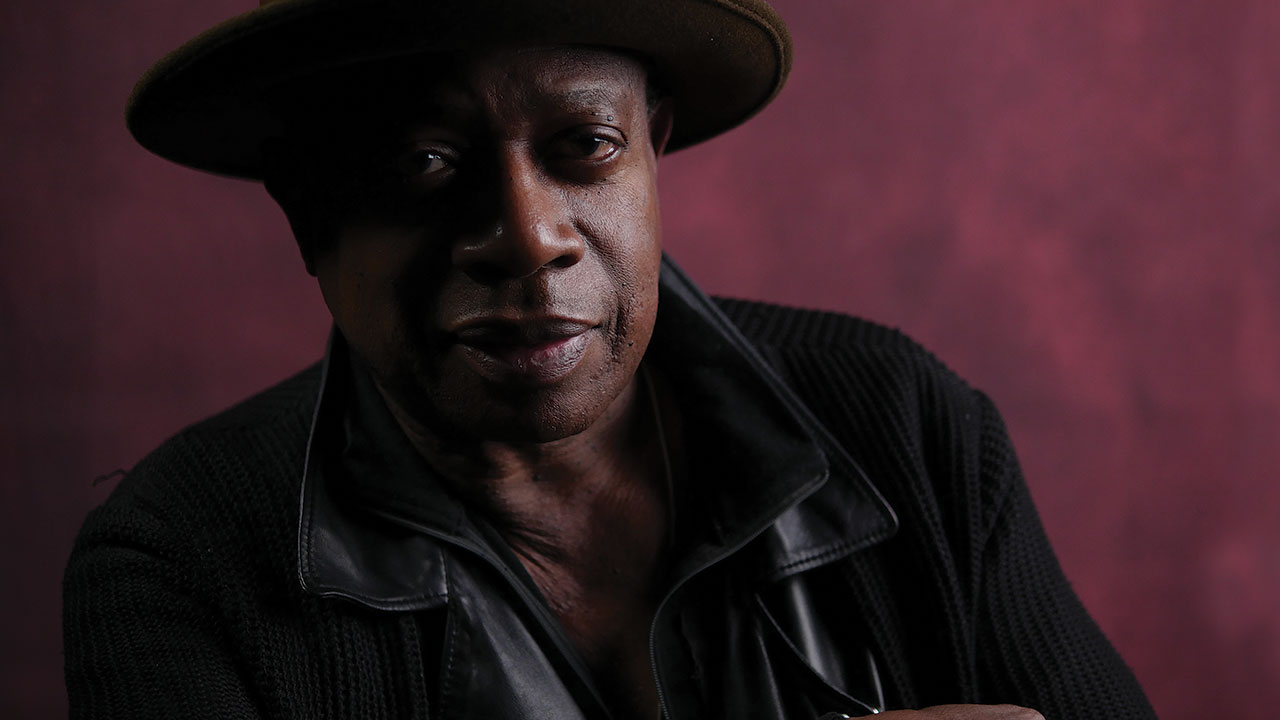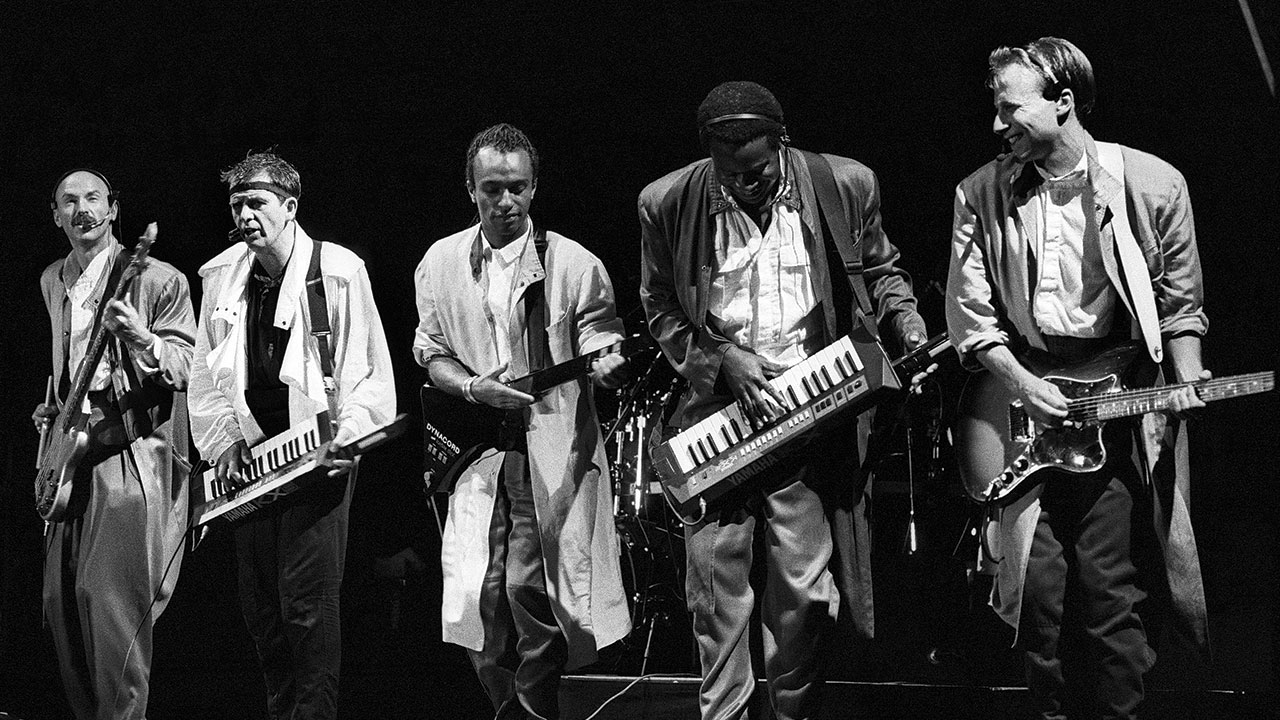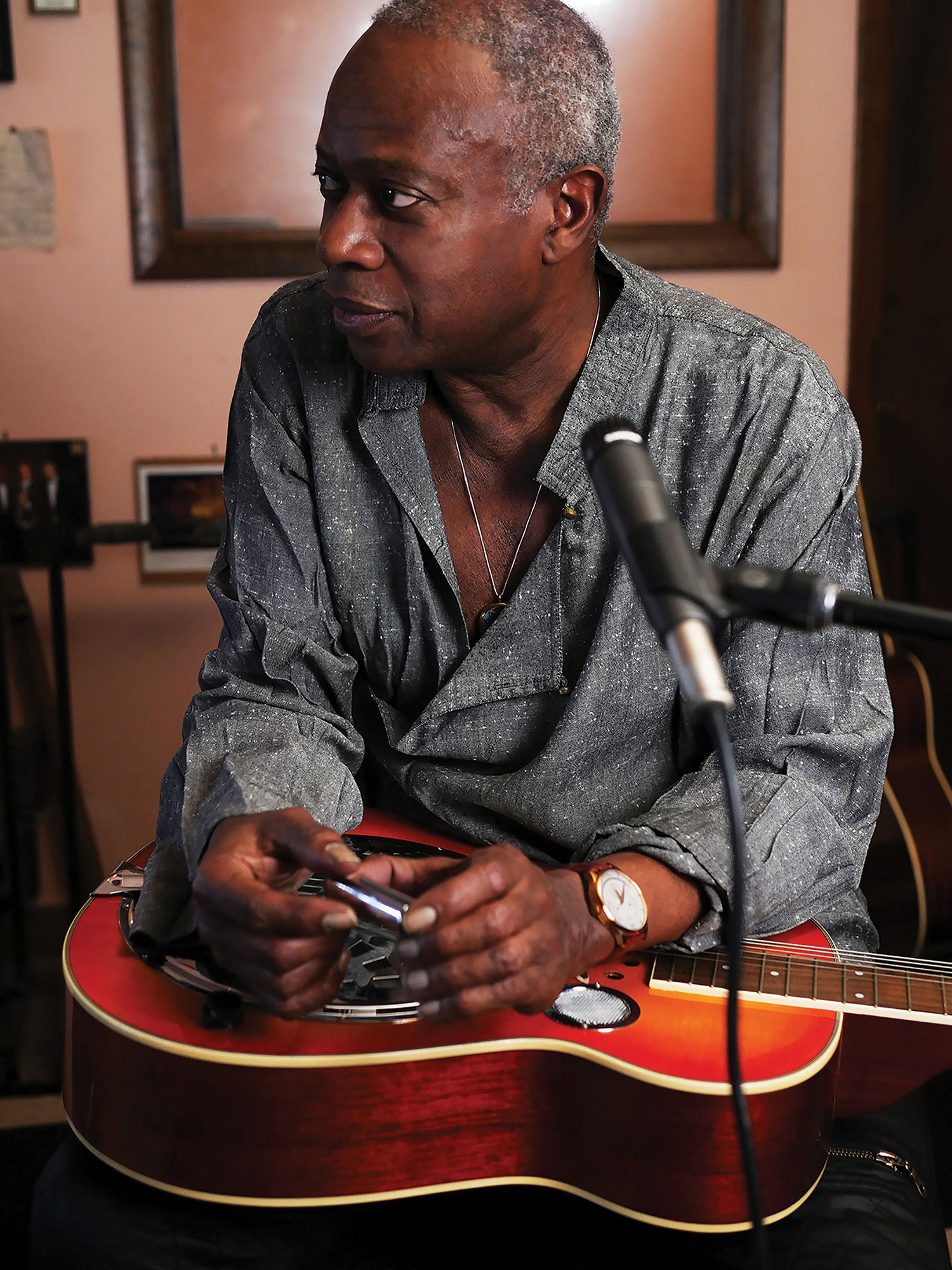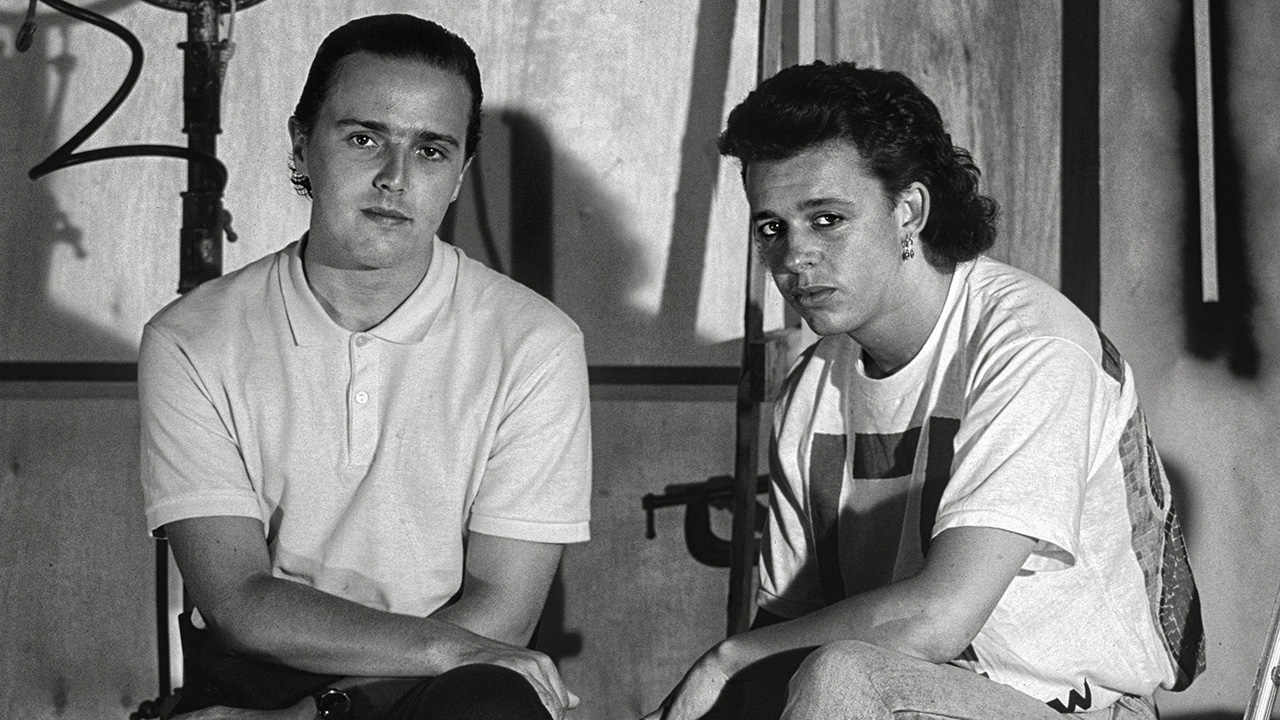
In an interview conducted before the death of George Floyd in Minneapolis in May 2020, renowned keyboardist David Sancious opened up about touring with Peter Gabriel, his new solo album Eyes Wide Open and told Prog why it’s so important to stand up for the truth.
They say if you want to understand the world from another person’s perspective you should walk a mile in their shoes. For David Sancious, a simple walk in Los Angeles graphically demonstrated that despite the thousands of miles marched by the civil rights movement in the 1950s, 1960s and beyond, very little had changed in terms of the discrimination experienced by the average black American.
He recalls being stopped by two LAPD cops for being “black while walking”, an incident that happened in the wake of the Rodney King beating by police officers. “I was on the original So tour with Peter Gabriel. We had a few hours to spare so we decided to take a walk on the Santa Monica pier and these two officers pulled me over and put me in the position. One minute I was out walking with my then-girlfriend and suddenly I’m up against a car with my hands up and my girlfriend is standing there looking at me, like, ‘What the hell is going on?’ What I haven’t mentioned is that my girlfriend was white. She also happened to be a professional photographer. She backed up a little bit on the grass and like a war photographer on one knee, started filming, rapid-fire, the whole situation. I called out the badge number of the officer, I said, ‘Write this – the officer’s name and badge number – down.’ They must’ve just been a couple of bored racist cops and, ‘Oh, let’s do one last thing on our way home before we knock off, let’s just mess with this black guy and just embarrass him’, or whatever.”
That particular encounter, coupled with the grim incidences of police shooting unarmed black men and the rise of racist, discriminatory behaviour was channelled into Urban Psalm #3 on Eyes Wide Open, his first solo studio album since 2005’s Cinema.
David Sancious first came to prominence through his keyboard work in Bruce Springsteen and the E Street Band’s 1973 debut, Greetings From Asbury Park, NJ. A multi-instrumentalist equally at home supplying scorching lead guitar, as he did on Stanley Clarke’s Journey To Love, or with his trademark fluid, dazzling keyboards. Sancious formed his own band, Tone, oscillating between jazz-fusion and a distinctly prog-centric rock on albums such as 1976’s Transformation (The Speed Of Love), 1977’s Dance Of The Age Of Enlightenment and 1978’s True Stories. Peter Gabriel’s admiration for Tone led him to send a telegram offering Sancious a job in his live band, a role and a friendship that has lasted decades.

Articulate and nuanced, his new record doesn’t pull any punches when it comes to calling out the blight of racism and the unravelling of the civic and civil norms that have spawned a destabilising chaos and uncertainty. The songs and music for Eyes Wide Open have been a long time coming, he says, evolving after lengthy touring with Gabriel and his other live commitments with Sting. “I had a period where I was home and I had months without work but I had enough money to survive. Everything was fine. So I just delved into it and focused on it. Also, things that happened around that time politically, like the election in the US; that had an impact on me, of course. I started sort of getting ideas about that and watching the correlation of what happened in the UK with Brexit, how that was politically a very similar dynamic albeit in a different form, you know? Everything really came together quickly. So the personal, along with the social, along with the political, it all just became a theme. I definitely knew that I wanted to have at least one vocal piece on the album. But then as all these things developed, I said, ‘These things belong together and I want to present the vocal themes in order.’ You know, it’s almost like two records in one. A whole side of vocals and the opposite with instrumentals.”
With Sancious providing all the vocals, keyboards and guitars on the album, he’s joined by an appropriately agile and shifting cast of world-class drummers including Italian jazzer Adriano Molinari, Living Colour’s Will Calhoun, Prince alumni Michael Bland, long-time collaborator Joe Bonadio and session legend Vinnie Colaiuta. The album is peppered with samples of news recordings, often bookending the tracks with that spoken narrative adding conceptual heft, which establish the impression of not only this being akin to a documentary soundtrack but, as the instrumentalist describes it, a movie for the ears. “What you see in your mind’s eye is up to you how you feel. It’s very cinematic. The instrumental part of the album, I think, I’m really happy with that as well. This album is the gradual unfolding of what I wanted to say, the way I wanted to say it, and combining it with the other music. What’s interesting to me if you listen to the thing in the order that the songs are presented, it’s really an interesting journey. It’s pretty, pretty broad. It’s like an ocean of music, of experience and concept and feelings and stuff, not to mention the musical styles. There’s a lot of musical ground that’s covered there. The song War in Heaven, that’s a whole other thing. Just me and Vinnie Colaiuta going at it.” The track recalls some of the dextrous interplay that was a feature of his Forest Of Feelings album. “Yes, I agree, and another song that does that for me is The Treehouse. I think has kind of sonic connection to Forest Of Feelings and that era of performance without being harmonically identical to it.”
Sign up below to get the latest from Prog, plus exclusive special offers, direct to your inbox!
On In The Middle Of The Night an exhausted, groggy voice can be heard complaining about being unable to sleep. It belongs to Sancious himself, captured audio vérité, sounding weighed down by the situation we currently find ourselves in. “I was so concerned about things that I just was up, I could not sleep,” he says. The current ‘America first’ direction of US foreign policy fills Sancious with grave concerns, as does the domestic agenda being pursued by Trump’s White House. “It’s all gone backward. Trump has to be removed from that office. The longer he’s there, the worse it’ll get. Whatever you thought this person was going to do for you, it’s wrong. The support for him was misguided and it’s really damaging the country. It’s a very worrying time. Gosh, I mean if things weren’t frisky enough, we’re having to deal with a worldwide pandemic.”

Like other musicians, Sancious’ paid live work has come to a halt due to the Covid-19 pandemic. At a time when he might be expected to be gigging in support of the new album, he finds himself quarantined at home. With numerous one-off dates gone, a whole year’s worth of income has also been lost following the cancellation of a tour with Italian vocalist Zucchero. “We were due to start that in May but it’s all gone. I was talking with Will Calhoun on the phone the other day, and we were wondering what’s going to happen until live work comes back? It’s not like we’re going to get the all-clear and boom – we’re all running out of our places and the concert halls are filling up again. So, with all of this employment gone away it’s going to take a while to come back or resurface some kind of other way. I mean, it’s going to be more important than ever to monetise the internet and find ways to keep producing music somehow and then find a way to give you enough income to help you survive. It’s really challenging. To be honest, it’s a day by day thing.
“It is truly a different industry from the one that when I got started in the 60s and 70s. You really have to reinvent yourself. I think there’s a kind of continual… not so much reinvention, but an expansion when it comes to finding other ways to reach people.”
Though taking care of business is a necessary adjunct of being a professional musician, what’s interesting when you talk to Sancious is the deep relationship he has with music in its most natural unmediated state. When he speaks, Sancious possesses a stately calm, giving the impression of someone who’s warm, quick to smile, and pretty grounded; he knows where he comes from, who he is and where he’s going. Part of his composure and sense of focus comes from his long-standing practice of meditation and yoga. “I started meditating when I was a teenager,” he reveals. “I think I was still in the E Street Band when I started, or managed transcendental meditation. So I had to be like 17 or 18. I also do yoga. Sting taught me the form of yoga that he does, which is really challenging and hard. I feel privileged to have this music come through me because I’ve seen the effect that it has on people. I can’t explain to you how I feel when I hear the music and what effect it has on me internally, emotionally, and I know that I’m not special in that way. Other people will have their own way, in their own time, to their own degree, they will have that energetic experience of it. I feel myself to be an instrument for the music itself in the same way that, you know, these keyboards, that’s the instrument that I then touch to get it into the third dimension and get it to people.”
The title of the album, Eyes Wide Open, is for Sancious another way of saying that things have to change and change for the better, but the caveat is that you have to stand up and be counted. “It’s on everybody more than ever to be aware of what’s going on in our world and to help people where you can, and to stand up for what’s true and right in life and not side with the people who want to deny the facts and deny reality. There is the lyric from the title track, Eyes Wide Open that goes: ‘Up is down, the sky’s on the ground, shoot you in the back is the name of a town somewhere, somewhere in America.’ That’s messed up. There are lots and lots of people who will take that pay cheque from Fox News or Trump’s administration who’ll tell you that you’re bright green and you’re from Mars right to your face and just distort and deny reality. That has to be stood against and everyone could do that in their daily life. Everyone’s got their own responsibilities. Like we’re responsible for our own bodies; what we do and what we don’t do; what we believe and don’t believe; what we’re going to take part in what we’re going to stand against.”
Sid's feature articles and reviews have appeared in numerous publications including Prog, Classic Rock, Record Collector, Q, Mojo and Uncut. A full-time freelance writer with hundreds of sleevenotes and essays for both indie and major record labels to his credit, his book, In The Court Of King Crimson, an acclaimed biography of King Crimson, was substantially revised and expanded in 2019 to coincide with the band’s 50th Anniversary. Alongside appearances on radio and TV, he has lectured on jazz and progressive music in the UK and Europe.
A resident of Whitley Bay in north-east England, he spends far too much time posting photographs of LPs he's listening to on Twitter and Facebook.

